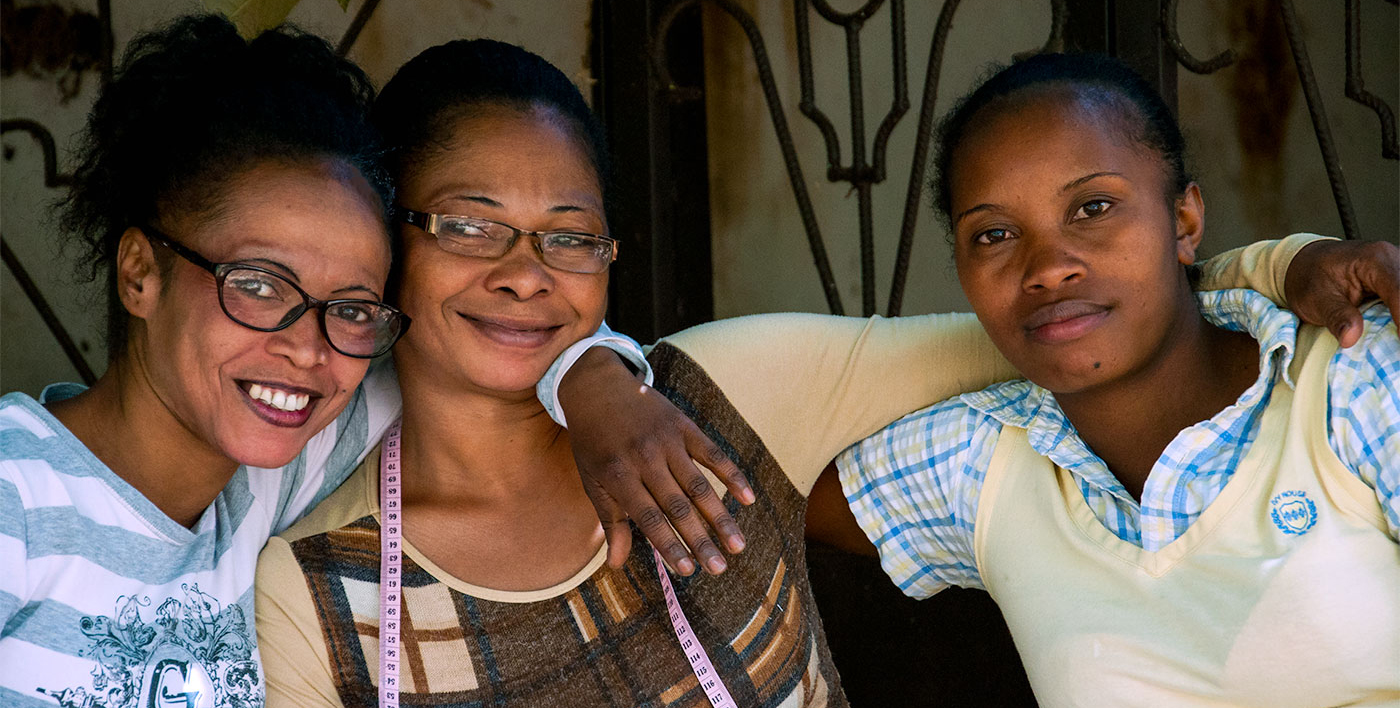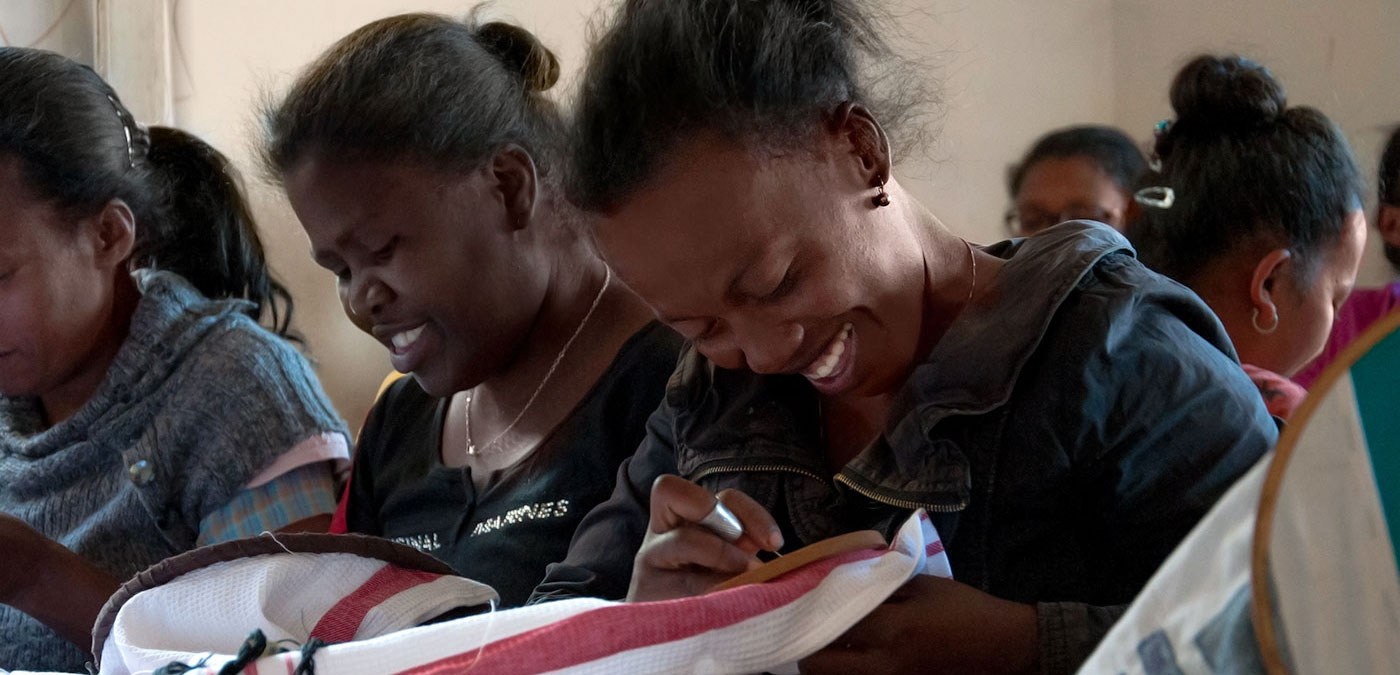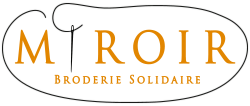In 2004, the association from Reunion Island Rive Océan Indien, whose main purpose was to fight HIV in the area, decided to broaden their action and address the issue of extreme poverty in Madagascar. A new association was then created: MIROIR.
In order to help Malagasy women in precarious position who never received any education or training course and who are often left alone to raise their children, MIROIR (Madagascar et l’Île de la Réunion pour Oser, Innover et Réussir) developed a solidarity embroidering activity.

After training these women for six months to teach them embroidery, a traditional Malagasy craft, the association intregrates them in a fair trade workshop where they produce high end embroidery work.
Today, 50 women are working 5 days out of 7 in the Miroir workshop, located in a nice house in Amboditsiry, just a few kilometres away from the centre of Antananarivo.
They are paid and officially declared, can access health care, receive a daily lunch and one month of paid leave. In addition, the association funds their children’s health care and education. In total, 101 children are being taken care of, 78 of whom are going to private schools, thus guaranteeing a better education.
Madagascar’s home market being unfit for a high-end production, the products are exported to Reunion Island where they are sold by volunteers from Rive OI.
These volunteers freely give their time to help make Miroir products known and to increase their distribution in the Indian Ocean area and in Europe.
100 % of the profit is reinvested in the association. The financial support from Rive Océan Indien and generous donors have enabled us to complement the resources originating from the sale of our products for more than ten years. The sustainability of the workshop, which produced 2000 embroidered items in 2017, is thus maintained.

Thanks to this steady professional activity, the embroiderers of the Miroir workshop have seen their lives radically transformed.
They used to be out on their own to find means of survival on a daily basis. By working every day in their workshop, they learned to collaborate for the common good. Through the production of high quality embroidery, they gained a sense of pride that they had never felt before.
Together, they feel co-responsible for the quality of their work and for the use of their work place and working time.
Having a job and a salary gave them a self-esteem which is important for them and pivotal for their children. Today, they can guarantee that their children will not be doomed to live the precarious life they experienced themselves. Miroir allowed them to find their place in society and to be full-fledged citizens.
